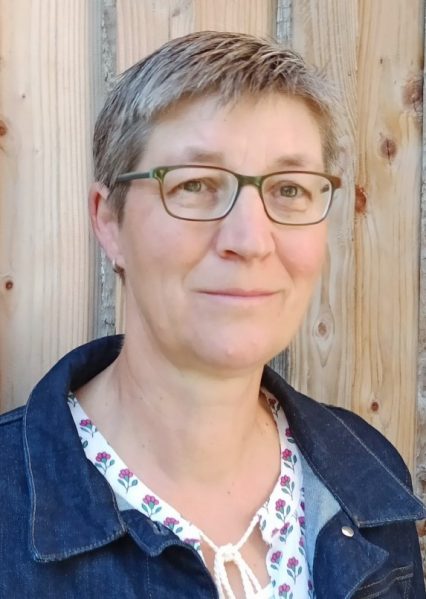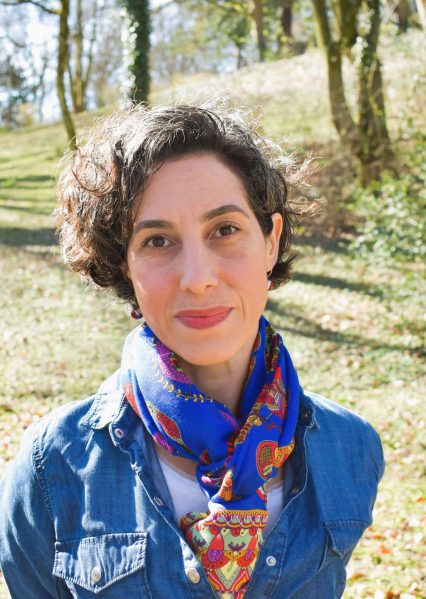MECAM invites a limited number of scholars for shorter research stays of up to two weeks as Visiting Scholars to Tunisia, usually in the context of academic events or upon recommendation by members of MECAM’s community of scholars (especially fellows).
Valerie Hänsch: Challenging the invisibility of Sudan’s war: Aesthetic practices, testimonies and the co-production of solidarity
Date of Visit : 30.11.2025 – 08.12.2025
Valerie Hänsch holds a PhD from the Bayreuth International Graduate School of African
Studies (BIGSAS). She has worked as a lecturer at the University of Bayreuth, LMU Munich,
the University of Khartoum, the University of Sousse, and the University of Vienna. Her
research has focused on technologies, large-scale infrastructures, socio-ecological changes,
and displacement in Sudan. She has also worked in a collaborative research project on
Sudanese audiovisual heritage and image restitution at the Ethnological Museum in Berlin.
Her current research explores the links between activism, aesthetic practices, and affect in
Sudan’s revolutionary process. As a visual anthropologist, she has produced several
collaborative ethnographic films. Her film Sifinja – The Iron Bride (2009) has received
multiple awards. She is co-editor of the special journal issue “Temporalities of Waiting in
Africa” (Critical African Studies, 2020) and author of the monograph The Attempt to Stay:
Dam Building, Displacement, and Resistance in the Nile Valley, Sudan (Berghahn Books,
2024).
Rapid Support Forces (RSF) have been engaged in a violent conflict. Despite the immense
human suffering, the war and its consequences have received limited attention from the
international public and media. In this talk, I examine the politics of (in)visibility surrounding
the war and explore the underlying global “hierarchies of solidarity” that shape both affective
responses and epistemic practices. Contrasting this with artistic and activist practices, I
consider how Sudanese artists transform experiences of revolution and war into acts of
witnessing and knowledge production that address multiple publics. Building on my own
audiovisual practice and research in Sudan’s overlapping crises, I discuss the relational and
affective dimensions of witnessing and reflect on the challenges of anthropological co-
production of solidarities.
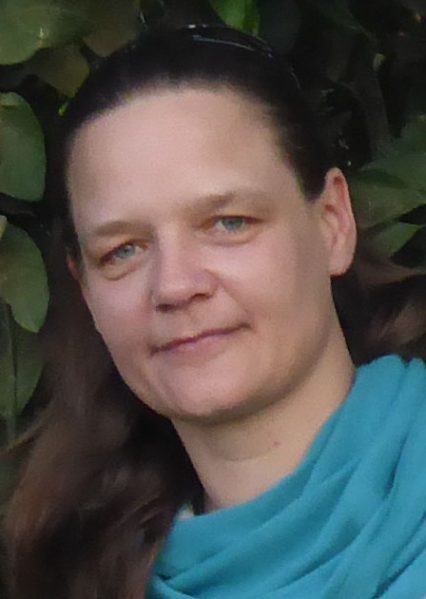
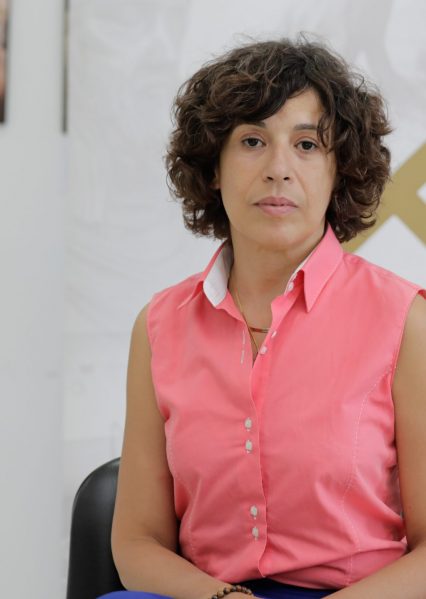
‘Towards a New Approach to the Islamic sources. From the canon to the margin and from the text to the paratext’
Date of visit: May 26 to May 31
Asma Helali is associate professor in Islamic Studies at the University of Lille, France. She has worked in various research centers in Europe, the United States and the United Kingdom. Her main interest is the transmission of religious texts in early and medieval Islam. She is currently subgrantee of the Templeton Religion Trust project, “Paratexts Seeking Understanding”, University of Glasgow and she is the director of Kairouan Manuscript Project (KMP), University of Hamburg. She is author of Asma Helali, The Ṣanʿāʾ palimpsest. The transmission of the Qurʾan in the first centuries AH, Oxford University press, 2017.
’Towards a New Approach to the Islamic sources. From the canon to the margin and from the text to the paratext’
The academic trajectories of modern and contemporary Western Islamic Studies are often rooted in the Orientalist traditions of the 19th and early 20th centuries. Scholars such as historians and philologists specializing in Semitic languages focused their studies on the sources of Islamic thought, particularly the so-called ‘foundational texts’ namely, the Qurʾān and prophetic traditions (hadith). Continuing along this trajectory, historians in the past two decades have devoted significant attention to situating Islamic texts within the belief systems of 7th-century ‘late antiquity’. They have developed conceptual and theoretical frameworks aimed at interpreting canonical Islamic sources as documentary texts. This paper shifts the focus of textual analysis from the textual canon to the marginal literature and from the text to the paratext offering a reconsideration of a central concept in Islamic Studies: the religious genre.
Pro. Mamadou Diawara
Date of visit: 10 to 17 April 2025 (Université Goethe de Francfort)
Prof. Mamadou Diawara est Director Germany du Merian Institute for Advanced Studies in Africa (MIASA) à Accra. Il est Goethe Research Professor d’anthropologie à l’Université Goethe de Francfort et directeur de Point Sud, le Centre de recherche sur le savoir local, à Bamako.
Activities:
- Diawara est Corresponding Fellow de la British Academy et membre du Council of the International African Institute, à Londres. Il fut director-adjoint de l’Institut Frobenius, Francfort-sur-le-Main, Fellow au Wissenschaftskolleg zu Berlin, au Stellenbosch Institute of Advanced Study, à l’Institut d’Études Avancées de Nantes. Il fut John G. Diefenbaker Fellow à l’Université Laval, Canada.Diawara a enseigné notamment à Yale (USA) et à l’Université de Bayreuth.
Project carried out during the visit: Les études africaines face au défi du troisième millénaire
La présentation du professeur Diwara s’articule autour des questions suivantes : Quelle est la place des études africaines dans la production du savoir, particulièrement en histoire et en anthropologie, autant de champs disciplinaires au sens de Bourdieu, synonymes de champs de pouvoir ? Comment se renouvelle l’écriture dans nos disciplines, en restant alerte quant aux producteurs et productrices de connaissance ? Comment les autrices et les auteurs des textes, oraux et écrits, que nous consommons abondamment dans les études africaines, produisent-ils du sens ? Quelle conséquence en résulte-t-il dès lors qu’il s’agit de transmettre ce savoir ?
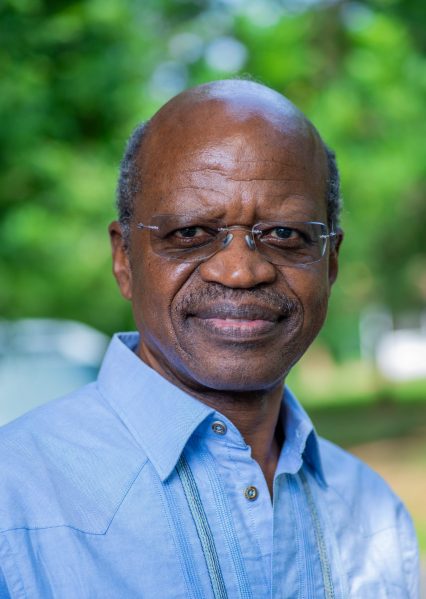
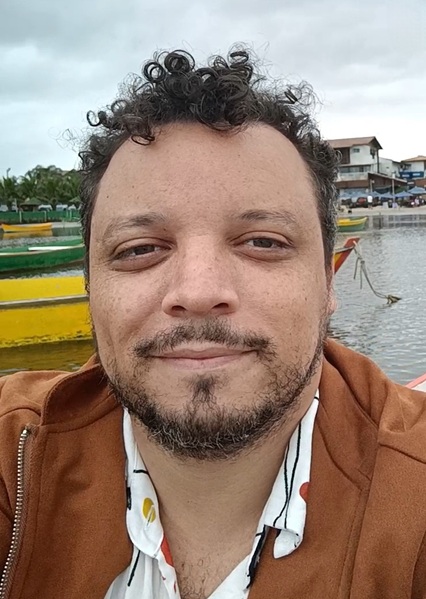
Aesthetics of Extractivism: When dead rivers speak
Date of visit: 20.01.2025 -27.01.2025
Dr. Tomaz Amorim holds a bachelor’s degree in Literary Studies and a master’s degree in Literary Theory from Unicamp.
He was a master’s scholar in the “Albertus Magnus Program” at the University of Cologne in Germany. He holds a Ph.D. in Literary Theory and Comparative Literature from USP, with a research exchange fellowship at Humboldt University of Berlin. He completed a postdoctoral fellowship in Literary Theory and History at Unicamp, where he studied non-modern intersections between the works of Oswald de Andrade and Walter Benjamin. He also completed a postdoctoral fellowship at the Cluster of Excellence “Temporal Communities”. Currently, he is the Academic Coordinator of Mecila (Maria Sibylla Merian Centre Conviviality-Inequality in Latin America), where he also conducts research on Modernism and Extractivism in Latin America. He has published scholarly articles, poetry books, and literary translations. In 2024, he published the literary criticism book “Arquipélago: Literatura Brasileira Contemporânea” (2013-2023).
The term “extractivism” typically refers to an economy centered on the extraction of raw materials, which are processed elsewhere and often sold back at significantly higher prices. What is extracted—commodities, energy, or labor (especially that of Black and Indigenous bodies)—is frequently reduced to a homogeneous, measurable resource exploited until depletion. This process erases the historical, aesthetic, and cosmological relationships between the extracted, the extractors, and the territory. Such dynamics, intrinsic to the planetary division of labor, often devastate the intricate connections between people and their environments.
While extractivism has primarily been analyzed within the social and natural sciences, it also invites exploration from aesthetic perspectives. These include innovative artistic representations, critical studies on the role of extractive industries in modern and contemporary literature (Wisnik), and a broader engagement with aesthetics rooted in the Greek aisthesis, meaning sensory perception. What sensuous relations underlie extractivism? How does it create or destroy perceptions of “worlds”? Latin America, historically shaped by colonial and extractivist violence, offers valuable insights into these questions through its literature. Its narratives have oscillated between denouncing and endorsing such violence, bearing witness to the destruction of its “pluriversos” (Escobar), and expanding aesthetic boundaries beyond European conventions. Colonial violence, which positioned the white man as a universal reference, also inscribed others as “marked bodies,” scarring not only human and non-human forms but also landscapes—dismembering water bodies, displacing beings from forests and coastlines, and hollowing out its “Cordilleras” and “Geraes.”
Contemporary literature, however, increasingly reclaims these marked bodies, not as passive elements but as narrative subjects. Human and non-human entities narrate their own (hi)stories, countering anthropocentric and colonial extractivist paradigms (Gómez-Barris). These narratives propose alternative philosophies of history (Oswald de Andrade), embracing diverse cosmovisions, epistemologies, and ontologies (De La Cadena) to challenge the ecocidal Anthropocene and envision ways to avoid the multiple “ends of the world” (Krenak; Viveiros de Castro & Danowski).
Through an analysis of Prisca Agustoni’s poetry book O gosto amargo dos metais (The Bitter Taste of Metals, 7Letras, 2022), written in response to the environmental disasters in Mariana and Brumadinho, the lecture examines recurring modernist and contemporary literary motifs. The book reflects on extractivist infrastructure and the “waste lands” left by post-extractivist activities, as well as territories affected by so-called ecological “disasters”.
Inward Turn: European and German Foreign Policy towards the Maghreb in Times of Populism
Date of visit: 02.12.2024 – 06.12.2024
Hubert ZIMMERMANN is Professor of International Relations at Philipps University Marburg, Germany. After graduating from the European University Institute in Florence (Italy), he has held, among others, positions at Düsseldorf University (Germany) and Cornell University (USA). His current research focuses on international security, global financial and monetary policy, the European Union (in particular its foreign economic and security policies), foreign military intervention, and transatlantic relations.
The war in Ukraine, the pandemic, the increasing nationalist turn of US security and economic policy, the divisions engendered by the war in Gaza and the ongoing migration crisis: all these factors have led to an increasing introspection in European and German foreign policy. Growing populist movements in the member states, mainly from the right, have put increasing pressure on the liberal-internationalist foreign policies of the EU and its member states. How does this impact European and German foreign policy towards the Maghreb? The contribution argues that international and domestic factors will result in a more transactional foreign policy towards a region which was once a core target of European human development, stabilization and democracy promotion policies.
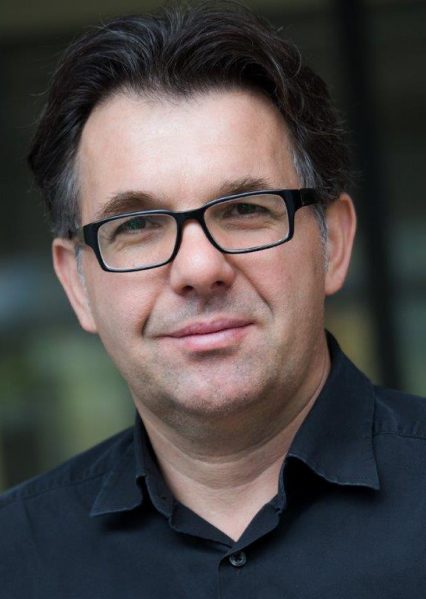
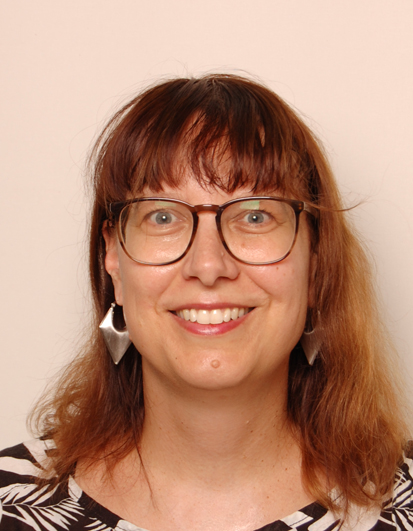
The Realities of Refugee Work Rights: Policy Gaps and the Consequences for Violence
Date of visit: 05.11.2024 -16.11.2024
Prof. Dr. Heidrun Bohnet (University of Continuing Education Krems) and Grace Gacki (University of Pittsburgh)
Heidrun Bohnet is Associate Professor of Migration and Conflict Research at the University of Continuing Education Krems in Austria. She is currently leading the ERC Starting Grant project “MixedRivals”, which examines the perceptions of threat and inequality and the risk of violence between different migrant groups in North Africa. She holds a Ph.D. in Political Science and International Relations from the University of Geneva, Switzerland.
Previous studies have often relied on de jure refugee policy data, overlooking the complex realities on the ground. Using new de facto refugee rights data from Africa, this paper examines how practical restrictions on work rights impact conflict. The findings reveal that implementation gaps significantly increase the risk of violence. Therefore, ensuring the practical enforcement of refugee rights is crucial for preventing conflict.
Colonial Mediterranean in Late Antiquity: The Struggle between diverse Language Levels. (Identities and Beliefs)
Date of visit: 02.11.2024 -10.11.2024
Moacyr Novaes, Prof. Dr. at Universidade de São Paulo – Brazil, is a Principal Investigator at Mecila – Maria Sibylla Merian Centre Conviviality-Inequality in Latin America, member of Cepame – Centro de Estudos de Filosofia Patrística e Medieval de São Paulo and of the GT-History of Medieval Philosophy as Reception of Ancient Philosophy, at the National Association of Post-Graduation Studies in Philosophy.
Some of Augustine of Hippo’s works can be examined as historical testimonies of a philosophical critique of linguistic exclusivity or domination with regard to knowledge and the transmission of truth. These testimonies point to new philosophical possibilities in contemporary decolonial debates about the subalternity of languages and insurgent voices.
The instrumental role of language and normative grammar for domination and subalternation is well known about modern colonial times. In late antique North Africa, the struggle between high standards of classical Latin and a popular Latin mixed with Punic elements can also be regarded as a dispute in a colonial context. The almost uncontested authority of Vergil as a poet in the whole late Roman Empire is an example of domination through language, from basic grammar school to the refined works of literature, as Macrobius Saturnalia. However, this role model was challenged by popular language in different ways, as testified by an African Philosopher: Augustine of Hippo examined the limits and failures of human language in general, and elitarian colonial Latin in particular, showing the philosophical and literary virtues of popular language. In effect, some works of Augustine can be examined as historical testimonies of a philosophical critique of linguistic exclusivity or domination,
regarding the knowledge of truth, its transmission, or the legitimate ways of human communication. Works as On the Teacher and On Christian Doctrine present analyses of language and grammatical correctness which contest the exclusivity of high-brow language and literature, and show the philosophical and literary value of (christian) popular ways of expression. In this presentation we would like to underline contemporary possibilities of recovering Augustine’s philosophical works for decolonial debates about language domination, subalternation and insurgent voices.

Breaking Taboos as a Political Strategy: Right-wing Populism and Anti-Gender Politics
Date of visit: 3-9.3.2024
Prof. Dr. Annette Henninger is a professor for gender and politics at the University of Marburg. Her areas of expertise include labor market, family and gender equality policies, intersectionality and democracy, and anti-feminist mobilizations.
Dr. Funda Hülagü is a research associate and sessional lecturer at the University of Marburg. Her current research interests include organized anti-feminism in Turkey, anti-gender politics in authoritarian settings and critical theory. Hülagü has several publications on state restructuring in Turkey with a focus on gender politics.
Anti-gender campaigns are spreading globally in the wake of a ‘populist moment’ (Graff/Korolczuk 2021). Right-wing populist actors denounce progressive norms concerning the rights of women and LGBTQI+ individuals as a project of globalized elite. Instead, they appeal to the common sense of ‘the people’ whose will should be represented in politics – and thus apply classical populist strategies (Mudde/Kaltwasser 2017). This paper argues that there have been substantial social struggles and consensus-building processes, which made the concept of gender equality a political norm and its breaking a taboo. By invoking common sense arguments to deliberately break these taboos, right-wing populist actors discredit these progressive norms; alter the dominant political discourse; demoralize the progressive opposition forces, and engineer a ‘politics of fear’ (Wodak 2015) that serves into the hands of a range of retrogressive actors.
Yet, this strategy of norm breaking is not effective at all times and places. Hence, a second objective of this paper is to discuss when and under which socio-economic and politicalcultural conditions these strategies succeed, and when they fail in achieving their goals. We provide a comparative analysis of the conflicts around marriage and divorce politics in Germany and Turkey to discuss the following questions: when does the taboo-breaking act of right-wing populism resonate with the common sense? How do social structures and public opinion affect the perception of norms that are broken? What is the role of political counterdiscourses?
Oil for Food: The Global Food Crisis and the Middle East
Date of visit: 07-12.12.2023
Eckart Woertz is director of the Institute for Middle East Studies (IMES) at the German Institute for Global and Area Studies (GIGA) in Hamburg and professor for contemporary history and politics of the Middle East at the University of Hamburg. His research interests encompass the political economy of the Middle East and North Africa, food security and energy issues. He is author of Oil for Food (Oxford University Press 2013), co-editor of the Water-Energy Food Nexus in the Middle East and North Africa (Routledge 2016) and has published in leading academic journals such as Food Policy, Food Security, Middle East Journal, Mediterranean Politics, The International Journal of Water Resources Development and Globalizations. Besides academic publications he has contributed to numerous consultancy and policy reports for clients in the Middle East and at international organizations. Previously he held positions at the Barcelona Centre for International Affairs (CIDOB), Sciences Po in Paris, Princeton University and the Gulf Research Center in Dubai and worked for banks in Germany and the United Arab Emirates in equity and fixed income trading.
The talk analyzes agricultural development in countries of the Middle East and North Africa (MENA) in the postwar decades and how food security has interacted with geopolitical risk factors from the oil crisis of the 1970s to the global food crisis 2007/08 and the impact of the war in Ukraine. Special attention is being paid to interconnections between water and food security and how they interact within the Water-Energy-Food nexus.
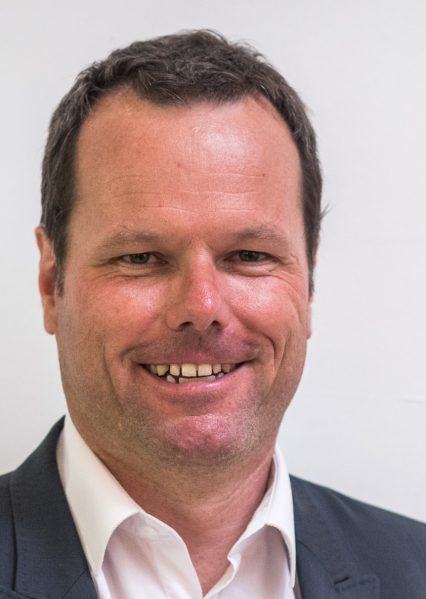
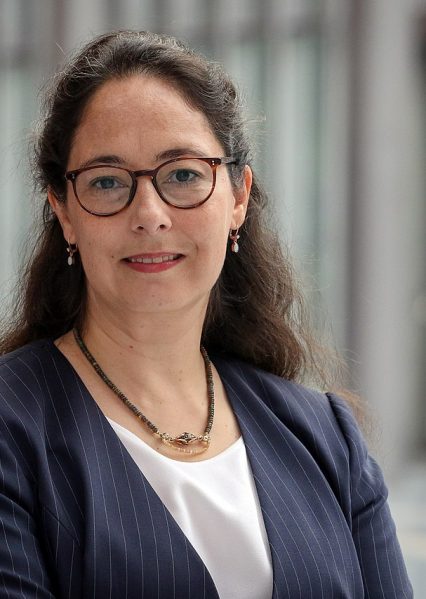
Invariant Spinors on Homogeneous Spheres (Joint work with Jordan Hofmann and Marie-Amelie Lawn, London)
Date of visit: : 31.10-04.11.2023
Prof. Dr. habil. Ilka Agricola is a Professor of Mathematics at the Faculty of Mathematics and Computer Science at the Phillips-Universität Marburg, Member of the Senate of Philipps-Universität Marburg, Head of the Vertrauensrat. She is also director of the Collection of Mathematical Models, research area: Differential Geometry and Global Analysis and was President 2021-22 of the DMV (Deutsche Mathematiker-Vereinigung).
The classification of transitive sphere actions induces nine different homogeneous realizations of the sphere. We explain what a homogeneous spin structure is and describe which homogeneous spheres admit one (which is then unique). In each of the cases we determine the dimension of the space of invariant spinor fields, give their explicit description, and study the underlying related geometric structures depending on the metric. We will sketch how the highly non-trivial representation theoretic computations are based on a rather unusual description of the spin representation in terms of exterior forms.
The Effect of the “Woman Life Freedom” Protests on Life Satisfaction in Iran: Evidence from Survey Data
Date of visit : 12-17.11.2023
Mohammad Reza Farzanegan is a full professor of Economics of the Middle East at Center for Near and Middle Eastern Studies (CNMS) and the School of Business and Economics of Philipps-Universität Marburg in Germany. In Marburg, he is the coordinating professor for international MSc program in “Economics of the Middle East-EMEA”. He is a Research Fellow of the Economic Research Forum (ERF, Cairo) and a member of its Advisory Board. In addition, He is a CESifo Research Network Fellow (Munich) and Executive Secretary of International Iranian Economic Association (IIEA).
We examine the effect of the “Woman, Life, Freedom” protests in Iran during the last quarter of 2022 on individual life satisfaction. We use two original representative surveys in Iran conducted in 2022 before and during protests. Our results, based on an ordered logit regression analysis for a sample of more than 2,000 individuals, show that the violent protest environment had a significant and negative effect on life satisfaction in Iran. To determine the exposure of the respondents to protests, we calculated the number of protests within a 25km radius of the respondents’ locations. The protest environment reduced the probability of life satisfaction by 3.7 percentage points. Moreover, we find significant heterogeneity among the respondents with respect to their life satisfaction before and after protests. The largest negative impact of the protests on life satisfaction is observed among women, members of working class, and those with primary and tertiary education.
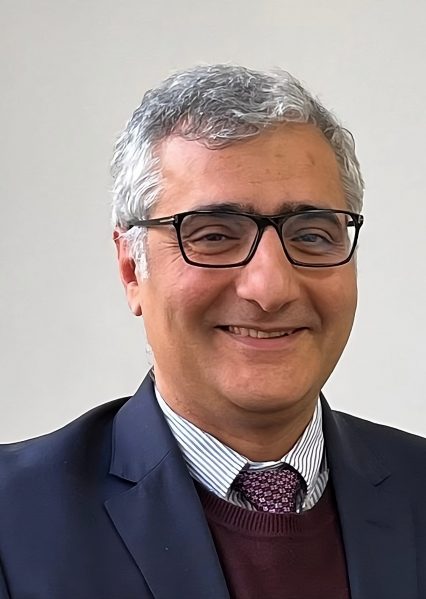
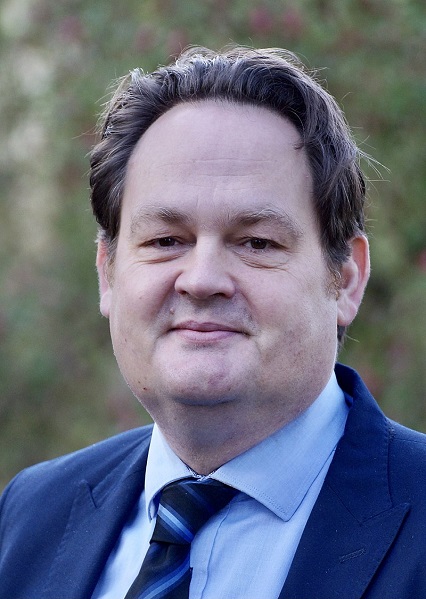
Does current European funding policy in the human sciences influence the global view of the Arab world?
Date of visit : 18-22.10.2023
Prof. Dr. Albrecht Fuess is professor of Islamic Studies at the Centre for Near and Middle East Studies (CNMS) at the Philipps-Universität Marburg since 2010. His main research interests are the history of the Near and Middle East from the thirteenth to the sixteenth centuries and the contemporary Muslim presence in Europe. He is currently coordinating with Nicolas Michel (Aix) the ANR-DFG project: EGYLandscape. Exploring the historical landscapes of Egypt through the 13th and 18th centuries. https://www.egylandscape.org/. Another ongoing project involving him and German colleagues is the reconstruction of the history of Muslims in German through the archives of German mosques.
The relationship between the European Union and the Arab world remains complicated. It is still marked by the effects of colonialism and migration from the Maghreb to Europe. More recently, the Arab Spring, Syrian refugees and illegal migration have dominated European debates. These debates have also found their counterpart in European science funding programmes, which very often follow political orientations.
The contribution will therefore first present European science funding in relation to the Arab world over the last 10 years. It will then show the objectives of the funding and how this funding also shapes the image of the Arab world in Europe and the rest of the world.
Climate Security in West Asia and North Africa: Investigating Risks of Weaponization and Prospects of De-Weaponization
Date of visit : 03-10.09.2023
Amjed Rasheed is a University Lecturer in the Politics of West Asia and North Africa (WANA) in the Department of Politics, Philosophy and Religion, Lancaster University, and an Associate Fellow at the HH Sheikh Nasser al-Mohammad al-Sabah Programme, Durham University.
Using critical security studies as a theoretical framework, this research project aims to explore the relationship between climate resilience, climate security, green recovery and conflict prevention in West Asia and North Africa region, with a focus on case studies from Iraq, Lebanon, and Tunisia. We propose a three-part analysis involving impact assessment, implementation evaluation, and outlook assessment to understand the role of climate resilience in peace and conflict dynamics.
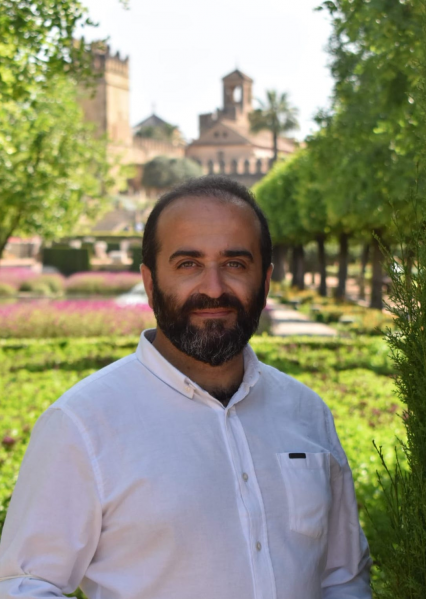

Transitional justice in process: plans and politics in Tunisia
Date of visit : 30.10.-05.11.2022
Dr. Mariam Salehi heads the junior research group ’Transnational Conflicts’ at the INTERACT Center for Interdisciplinary Peace and Conflict Research at Freie Universität Berlin. Previously, she was A.SK Social Science Fellow at the WZB Berlin Social Science Center and worked at the University of Marburg. Her PhD thesis on the Tunisian transitional justice process won the 2019 dissertation award of the German Middle East Studies Association.
«Transitional justice in process: plans and politics in Tunisia » is the first book to comprehensively study the Tunisian transitional justice process. After the fall of the Ben Ali regime in 2011, Tunisia swiftly began dealing with its authoritarian past and initiated a comprehensive transitional justice process, with the Truth and Dignity Commission as its central institution. However, instead of bringing about peace and justice, transitional justice soon became an arena of contention. Through a process lens, the book explores why and how the transitional justice process evolved, and explains how it relates to the country’s political transition.

